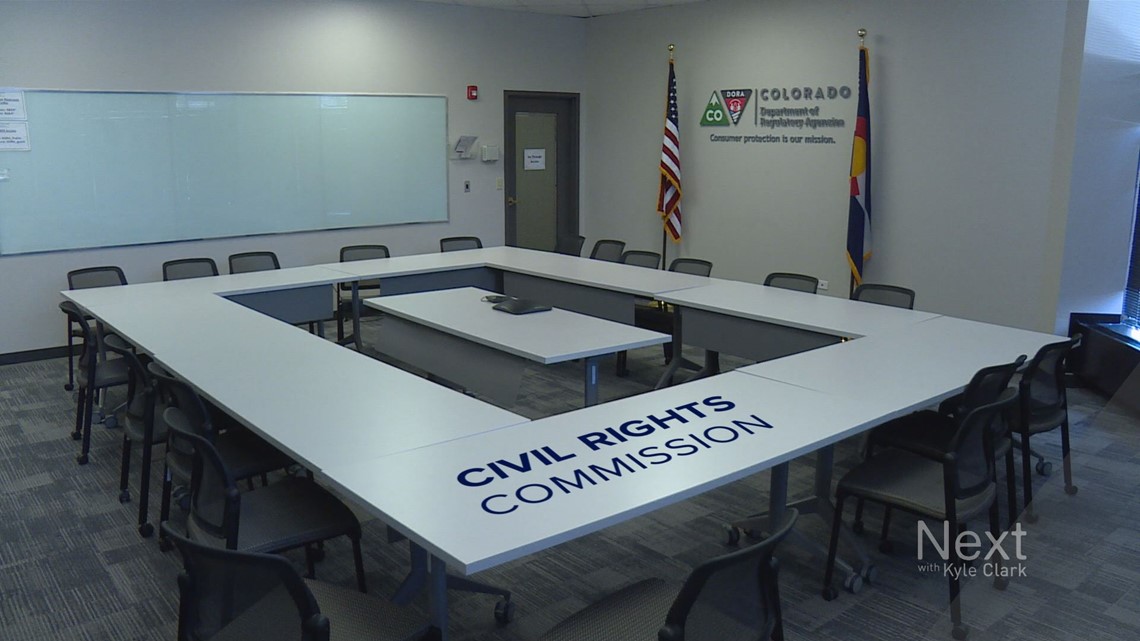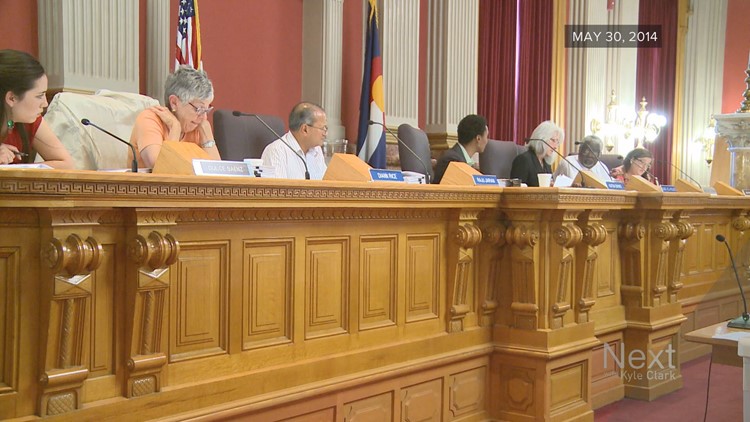DENVER — If you didn't know about the Colorado Civil Rights Commission before, the U.S. Supreme Court ruling that gave it a good finger-wagging probably has it on your radar.
In the case of Masterpiece Cakeshop vs. Colorado Civil Rights Commission, the U.S. Supreme Court ruled in favor of the cake shop on Monday.
After baker Jack Phillips refused to make a same-sex wedding cake for Charlie Craig and Dave Mullins, they filed a complaint that was investigated by the Colorado Civil Rights Commission.


The commission determined that Phillips discriminated against the couple.
The U.S. Supreme Court determined that the commission showed hostility to the religious beliefs of Phillips. The justices did not determine if either side was right or wrong.
None of the commissioners who made their decision in 2014 are still on the Civil Rights Commission.
The future of the commission, who sits on it and who appoints the members were all part of a last-minute debate before the legislature ended last month.
The Governor currently appoints all seven members of the commission. Two are supposed to represent businesses, one of which is for a small business between five and 50 employees. Two are supposed to represent local or state government. Three are at-large community members.
Senate Republicans wanted the commission to go from seven members to eight, and have the Governor only appoint four members, with two being appointed by the party leader in the House who has the opposite party affiliation as the governor, and two appointed by the party leader in the Senate who has the opposite party affiliation as the governor.
That did not get approved by the House.
Ultimately, a compromise was met on the last day of the legislative session.


The Governor will continue to appoint all seven members; three Democrats, three Republicans and one unaffiliated. They need to be confirmed by the Senate, but if they are not, the Governor cannot appoint that person for another two years.
Three of the commissioners will need to represent business entities.
The commission will also be subject to performance audits by the state auditor.
These reforms take effect on July 1, but won't fully be implemented until the current commissioners' terms expire.
CURRENT COMMISSIONERS:
- Anthony Aragon, Democrat, Representing State or Local Government Entities, Denver (term expires: 3/16/19)
- Miguel "Michael" Rene Elias, Republican, Representing Community at Large, Pueblo (term expires: 3/13/20)
- Carol Fabrizio, Unaffiliated, Representing Business, Denver (term expires: 3/16/19)
- Charles Garcia, Democrat, Representing Community at Large, Denver (term expires: 3/13/21)
- Rita Lewis, Democrat, Representing Small Business, Denver (term expires: 3/16/19)
- Jessica Pocock, Unaffiliated, Representing Community at Large, Colorado Springs (term expires: 3/13/20)
The commission helps decide complaints of discrimination by employers, landlords and businesses.
"It's important that we do vet all of those who are appointed or who are seeking an appointment to be on the commission," said State Rep. Leslie Herod (D-Denver). "We've got to make sure that they're free from biases, whether that be pro-LGBT biases, for instance, or anti-LGBT biases. We have to make sure that they are able to be fair in this process, that's the number one priority."
On Monday, State Rep. Dave Williams (R-Colorado Springs) tweeted that he's already working on new reforms for next legislative session to consider.
"I just pulled the bill title for next session to reform the CO Civil Rights Commission," tweeted Williams.
"Are there any CO Dems in the legislature willing to work in a bipartisan way to ensure the Colorado Civil Rights Commission doesn't harm people of faith again?"
"We'll call it the 'Jack Phillips Act,'" he tweeted.
The type of open hostility that the Colorado Civil Rights Commission displayed toward Jack Phillips is unacceptable, and we should act to ensure that people of faith are not unfairly treated for their desire to sincerely exercise their beliefs. Senate Republicans offered a number of reasonable reforms this past session to bring balance to an overreaching and clearly biased commission," Williams said in a text to 9NEWS. "As I begin the process of drafting legislation, I will consider and implement Senate Republican recommendations regarding greater due process. I will also reach out to Alliance Defending Freedom, Michael Farris, Jack Phillips, and the Trump Administration for their input and guidance on what this reform legislation should look like."



